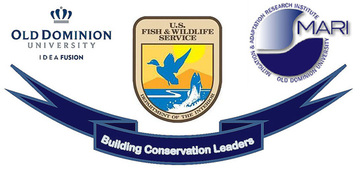Summer 2018: Sustainability Leadership
Class 6 (06/04/2018): Part 1: Evidence-based leadership. Part 2: ForesightPart 1: Evidence-based leadershipFor evidence-based management and leadership, it is important to realize that facts tend to be incomplete, often outdated, wrong, misinterpreted. It is important to understand the role of paradigms and immutable truths in the interpretation of facts. For the assessment of trends, understanding the problems of inductions, the meaning of Black Swans, possible surprises, is highly relevant. With sustainability being an emerging property of a system, monitoring the system and identifying its trajectory provides a basis to decide on the necessity of interventions. These interventions can oppose the system's current development to prevent undesired futures or utilize the system processes to direct it into a more desirable futures. Reading ListMandatory Readings Capra, F., 1996. The Web of Life. Random House Publishers. Read chapters 1 and 2. The PDF is also available in the workspace library. Kirchhoff, C.J., Lemos, M.C., Dessai, S., 2013. Actionable knowledge for environmental decision making: Broadening the usability of climate science, Annual Review of Environment and Resources, 38, 393-414. pdf. London, J., 1908. To Build a Fire. See https://americanenglish.state.gov/files/ae/resource_files/to-build-a-fire.pdf or http://www.jacklondons.net/buildafire.html. A quote: “The trouble with him was that he was without imagination. He was quick and alert in the things of life, but only in the things, and not in the significances. Fifty degrees below zero meant eighty-odd degrees of frost. Such fact impressed him as being cold and uncomfortable, and that was all. It did not lead him to meditate upon his frailty as a creature of temperature, and upon man's frailty in general, able only to live within certain narrow limits of heat and cold; and from there on it did not lead him to the conjectural field of immortality and man's place in the universe.” Plag, H.-P., 2016. Knowledge Must Translate into Action - “They had all the Knowledge ...” Column 12 in “On The Edge.” ApoGeo, 31(2), 8-10, Spring 2016, http://apogeospatial.com/knowledge-must-translate-into-action/. Additional reading: Boyle, M., 2017. Environmentalism used to be about defending the wild – not any more. The Guardian, May 22, 2017. html. Taleb, N. N., 2010. The Black Swan: Second Edition: The Impact of the Highly Improbable Fragility. Random House Publishing Group. Kilby, B., 2015. A Psychologist Explains Why People Don't Give a Shit About Climate Change. Vice, Posted on June 9, 2015, html. McBrayer, J. P., 2015. Why Our Children Don’t Think There Are Moral Facts. New York Times, March 2, 2015, html. Cock, J., 2011. How the term “scientist” came to be. Posted on February 16, 2011 at http://www.johndcook.com/blog/2011/02/16/origin-of-scientist/ Part 2: ForesightDevelop foresight and possible scenarios for the future of the system under consideration. Reading ListSeligman, M. E. P., Tierney, J., 2017. We aren't built to live in the moment. New York Times, html. |
